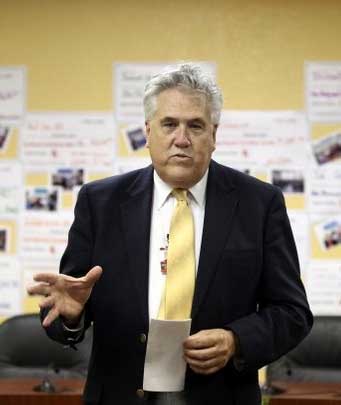We all know that the creationists have been busily trying to redefine science so that they can call Bible-based faith that the earth is 6000 years old “science”, while empirical research and validated theories are relabeled “dogma”. But now they’re going to reach deeper into the educational process and redefine “knowledge”.
While most of us think that it is ignorance that needs to be stamped out, advocates of Kentucky’s new unapproved and forcibly implemented science standards are targeting … knowledge.
Just take a gander at the responses to my opinion piece in the Louisville Courier-Journal which were published on Monday. According to Brad Matthews, former director of curriculum and assessment for the Jefferson County Public Schools, one reason we need these unapproved and forcibly implement standards is to extirpate that bane of all modern permissivist educators: memorization.
"Science education has moved away from the memorization of many facts," says Matthews, "and toward understanding how the laws and principles of science are applied."
That’s right: students have memorized too many facts. Their heads are bursting with scientific facts. There is not enough room in their tiny little brains for an understanding of how these facts should be applied because all the room us currently taken up by scientific facts which these students have memorized. There is simply no space in those fact-crowded little heads for scientific concepts.
The solution is obvious to people like Matthews: clear all that knowledge out of there so they will be able to apply the knowledge they will no longer have under these standards.
Knowledge is now the rote memorization of “facts”, and educators who try to get students to understand concepts are now enemies of knowledge. I’m sure the taskmasters who run madrassas are now nodding their heads in complete agreement.
Brad Matthews’ statement is entirely reasonable, and does not warrant one iota of the hyperbole Cothran applies to it. The worst classes in the world are the ones where we sit students down and force them to memorize strings of data and then regurgitate them onto an exam. That does not imply that kids shouldn’t have to master some basic rote skills; sorry, gang, knowing your times tables is still important as a basic life skill.
But you still have to understand how to apply that knowledge. For instance, in cell biology, I expect my students to memorize the structure of a peptide bond (that’s not hard) and the basic properties of the classes of amino acids (only slightly harder), and we talk about some basic chemical reactions, like hydrolysis. They should be able to figure out how you break a peptide bond, without memorizing all the pairwise combinations of amino acids and how they’re split chemically. Once you know the general principle you can apply it everywhere!
Also, if you’re learning science, you have to learn how to fit new facts into an existing body of knowledge, and memorization won’t cut it.
What these guys are really afraid of is that deep ideas like evolution are natural inferences from all the data and facts floating around in science — if you learn how to think, you’ll inevitably figure out that creationism is bullshit, evolution actually works and makes sense, and that all those religious cranks have been lying to us. So in defense they want to truncate education: memorize what we already know (and even that they will tightly circumscribe), but don’t you dare teach kids how to think.



